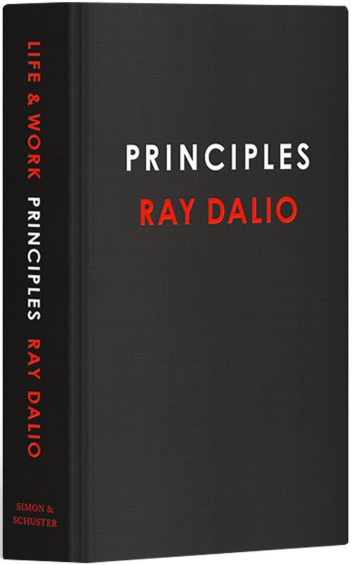2 minute read
Out Islands, Bahamas
When asked if our human intuition is reliable, Nobel Prize recipient Dan Kahneman comically replied, “Oh, our intuition is reliable, for sure. It reliably fails us."
Kahneman goes on to describe what from his research and experience, are the conditions under which we are safe to trust our intuition, versus the conditions where intuition is unreliable.
Environments which he advises are sensible to trust our intuition are when:
- The domain is regular and replicable (allows learning)
- You have experience (preferably a lot of experience)
- There is rapid feedback on success or failure (permits behavioral adaptation)
Don’t get me wrong. When these conditions are not met, we still have feelings of intuition. Worse, we are confident. It just turns out that our confidence is poorly correlated to accuracy, and our intuition in those cases (the majority of the time) is wrong. See Dunning-Kruger Effect.
As high performing Entrepreneur Owner-Managers (EOMs) we ask ourselves questions like: “How do I build this organization for the really long term? What are the drivers of Enterprise Value in my business? How do I ensure my employees and management team have a chance to unlock their potential? How will the positive legacy I envision get energized? Will a new majority owner appreciate the Enterprise Value I have built?” Are our intuitions about the answers to these questions correct and can we trust them…or not?
Let’s look at the characteristics of the private transaction market we operate in, and see if it fits Kahneman’s rubric for whether it is sensible to trust intuition or not.
Certainty, Risk, Uncertainty, and Ignorance. Decision making in risky environments is obviously tougher than under certainty. Decision making under uncertainty (where probabilities are ill-defined) is monumentally tougher. The private transaction environment is emphatically irregular and uncertain.
Repetition and Experience. There are few if any opportunities for EOMs to learn by experimentation, or low-cost learning. Because the private market is not transparent, there is little opportunity to learn vicariously or even by observing others’ actions and outcomes. Few EOMs are true serial business owners; most enter the private transaction market only once–for the largest legacy defining and economic outcome of their life.
Averages Obscure Realism. Almost all reporting of public and private markets–especially their outcomes–are delivered “on the average and in the aggregate.” Factors that drive positive Enterprise Value are treated alike and nuances are aggregated away. Since there are very few typical (average) events in the private transaction market, we avoid extrapolating from (or even thinking about) averages or heuristics like multiples.
Non-Comparison of Important Characteristics. Characteristics of EOM businesses which are easily comparable have the least to do with intrinsic value. Each EOM enterprise (even within a vertical market) is difficult to compare; unique observed dimensions are not easily priced.
Skin in the Game or “Stakes.” EOMs are Principals in their businesses where they suffer all the risk of loss and the potential of gain. The stakes…positive legacy, and (usually) the single largest financial outcome of your life is what is at stake. Cognitive biases acting on our decision-making do not encourage cool calculation and probabilistic decision-making. The Principal-Agent problem may be the single most dangerous problem for EOMs threatening their success and their subjective well-being.
What’s the lesson here? The private market fails Dan Kahneman’s test for conditions where it is safe to trust your intuition.
As Entrepreneur Owner-Managers, if we don’t have expertise in a domain, it often helps to find someone who does. A phrase for this might be expert advice. Should we trust expert advice?
That’s the subject of the next blog post.
What I am Reading / Listening to
Principles by Ray Dalio
Contributed by Stephen McGee
There aren’t many books that I read that make me say “whoa” and that I want to immediately read again. But that was the case when I recently read Principles. Written by Ray Dalio, the founder and CEO of Bridgewater Associates, the largest hedge fund in the world and, according to Fortune, the fifth most important private company in the United States, the book is part auto-biography, part self-help manual and part management book–and it is literally in three parts.
The auto-biography can be skipped for those who want to jump in to the principles themselves, but I actually found that it gave interesting and relevant context. The remainder of the book is split in to Life Principles and Work Principles. Needless to say the Life Principles tend to be loftier while the Work Principles tend to be more granular, and there is a lot of repetition of themes. Two cornerstone themes that underpin the whole book are “radical truth” and “radical transparency.”
Dalio comes from a very ordinary background growing up in the Jackson Heights neighborhood of New York City's Queens borough, so you will struggle to find any silver spoons or entitlement here. His principles, at the end of the day, are very straight forward and you might say logical. At times it’s hard to separate his life principles from his work principles, after all he started Bridgewater when he was 26 years old. Dalio’s 40+ years of scar tissue are laid out for the reader in a way that it is easy to follow and the fact that this book is based on his experiences and not theories makes it even more compelling.
As I read Principles it very much reminded me of Strategy and the Fat Smoker by David Meister – not in terms of the content per se, but that anyone engaged in a professional services business should consider both of these books a “must read.” While Meister perhaps provides the bread crumbs on how to approach the client, Dalio provides the clues to building a truly great organization, as he describes Bridgewater as “an idea meritocracy that strives to achieve meaningful work and meaningful relationships through radical transparency.”

Entrepreneur Owner-Manager Quote
“The emotional attachment I had to my company was a very big concern, I was surprised how easy it was to let go.”
- Anonymous EOM from 2018 Bigelow Forum
Energy Creation
Last December a few days before New Years, Hughes and Sarah Melton and their daughters Maggie and Claire were walking down the Queens Highway (a dirt path) on one of the Out Islands of the Bahamas where we live, and we casually said hello as we passed each other. I was carrying some sailing gear, Hughes noticed that and asked “Do you live here?" "Yep." "What an amazing part of the world this is." " Yes, it is. How about you, are you staying in the village?" "Yes we are.” And our friendship began.
How few times in our lives do we “see” the life and the sparkle in the other person’s eye and realize we are matching or attracting spirits? That’s what happened at that moment to Hughes and me. We sat down on a bench and traded life stories—his, a father to Maggie and Claire, husband of Sarah, family physician, Army vet, private pilot, healthspan advocate, MBA from Darden, pioneer in substance abuse treatment in Virginia, most recently, Commissioner of Virginia’s Department of Behavioral Health and Developmental Services. He was challenged by making the evolution from a single, hands-on practitioner with an N=1, to leader and manager of an important public sector caregiving organization. He was excited about the big positive differences he would be able to make in the lives of Virginians.
The next day, my wife Kareen and I invited Hughes, Sarah, Maggie, and Claire to come diving with us on a nearby reef. They arrived with gear in hand and we had a remarkable experience together—as if we were lifelong friends. This was culminated when I grabbed my mask, spit in it to antifog, and Hughes stammered, “Uh, I think that’s MY mask” (it was). Their daughter Claire was pilot in command the next day as she flew them back to Virginia from Marsh Harbour Bahamas in their small plane. Most recently, we had been talking about when they would next visit the Bahamas, and whether Maggie (at UVA), and Claire (first year at USAF Academy) would join or would it be an adults only trip.
Yesterday, Hughes died after a tragic head on car accident in which (during a medical emergency he was evidently experiencing), he swerved into an on coming lane and hit another vehicle driven by 18 year old Hailey Green who was also killed. Heartbreak is the ultimate understatement.
Hughes was one of those unique irreplaceable people who brought positive energy, brilliance, and…yes, joy, to the people he met and dealt with. I never had a patient or professional relationship with him, but I can only imagine what an uplifting experience that would be.
My friend Chris Peterson used to say “Days Can be Long, but Life is Short.” Hughes Melton was an energy creator in every domain of his life.


